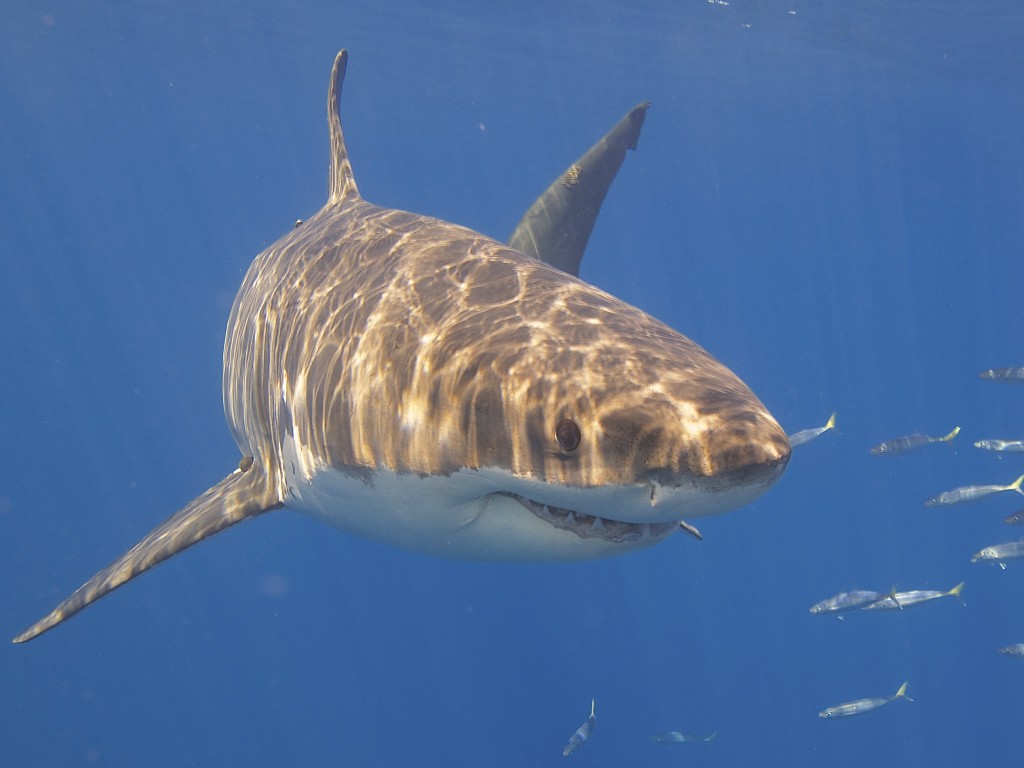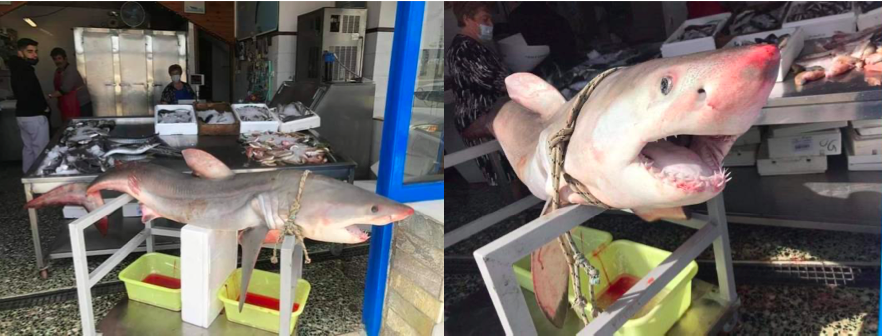NAXOS (Greece)- 23 Greek Environmental Organisations call on the Ministry of Rural Development and Food to implement the legislation on the protection of sharks and rays in Greece. They have done this after yet another unfortunate incident of catching, selling and displaying of a Great White Shark in the Mediterranean, this time on the Greek island of Naxos.
This incident complements the growing catalogue of illegal fishing of protected sharks and rays in the Mediterranean and in Greece.
Great white
The Great White Shark, Carcharodon carcharias (Linnaeus, 1758) is one of the most iconic animals of our oceans and the world’s largest known predatory fish. Unfortunately, contemporary narratives widely presented in popular media, Unfortunately, contemporary narratives widely presented in popular media regularly misrepresent this fascinating species.
Currently, the Mediterranean White Shark population is listed as Critically Endangered in the IUCN Red List of Threatened Species due to the dramatic decline of its population in the last 50 years: declining from 52% to up to 96% in some regions.
Bycatch
Great White Sharks are included – together with 23 other species of sharks and rays- in Annex II of the Barcelona Convention Protocol concerning Specially Protected Areas and Biological Diversity in the Mediterranean. Annex II species “..shall not be retained on board, transhipped, landed, transferred, stored, sold or displayed or offered for sale.” In accordance with Recommendation 42/2018/2 of the General Fisheries Commission for the Mediterranean (GFCM). In addition, as an EU Member State, Greek Fisheries are subject to Regulations 2015/2102 (Article 16j) and 2019/1241 (Annex I).
While there are no targeted fisheries for the species in the Mediterranean, bycatch in different fishing gears, like the pelagic longlines, bottom trawls and purse seines are the most prevalent threat for White Sharks’ collapsing population. All effort should be made to release bycatch of White Sharks.

Protection
It is particularly important that Greek Fisheries Authorities pay close attention to such incidents, taking into account the existing protection and conservation status of the species, and the fact that such accidental captures could allow the development of an illegal market. This could threaten the survival of the Great White Shark, a species that exhibits low reproductive and growth rates, long lifespan and a highly migratory nature.
Legislation
The organisations urge the Greek State to increase controls and enforce the existing national (PD 67/1981) and EU legislation regarding the protected species of sharks and rays, but also to undertake the corresponding protection measures imposed by the International Conventions, of which Greece is a signatory party. At the same time, we emphasize that the Audit Department of the Directorate of Control of Fishery Activities and Products, of the General Directorate of Fisheries of the Ministry of Rural Development and Food, must be activated and operate, as according to the P.D. 97/2017 (Government Gazette A ‘138 / 15.09.2017) is the only body with jurisdiction for controls in fish markets, fish shops and retail trade, so that there is a second control line for the trade of protected species of sharks and rays.
In addition, the 23 organisations call on all Mediterranean countries to work together to implement existing decisions and legislation. At the same time, there remains the need to educate and inform fishermen, stakeholders, citizens as well the media about the importance and status of protection of this iconic marine species, extremely important for the balance of Mediterranean ecosystems.
Read more in the press release of iSea.

